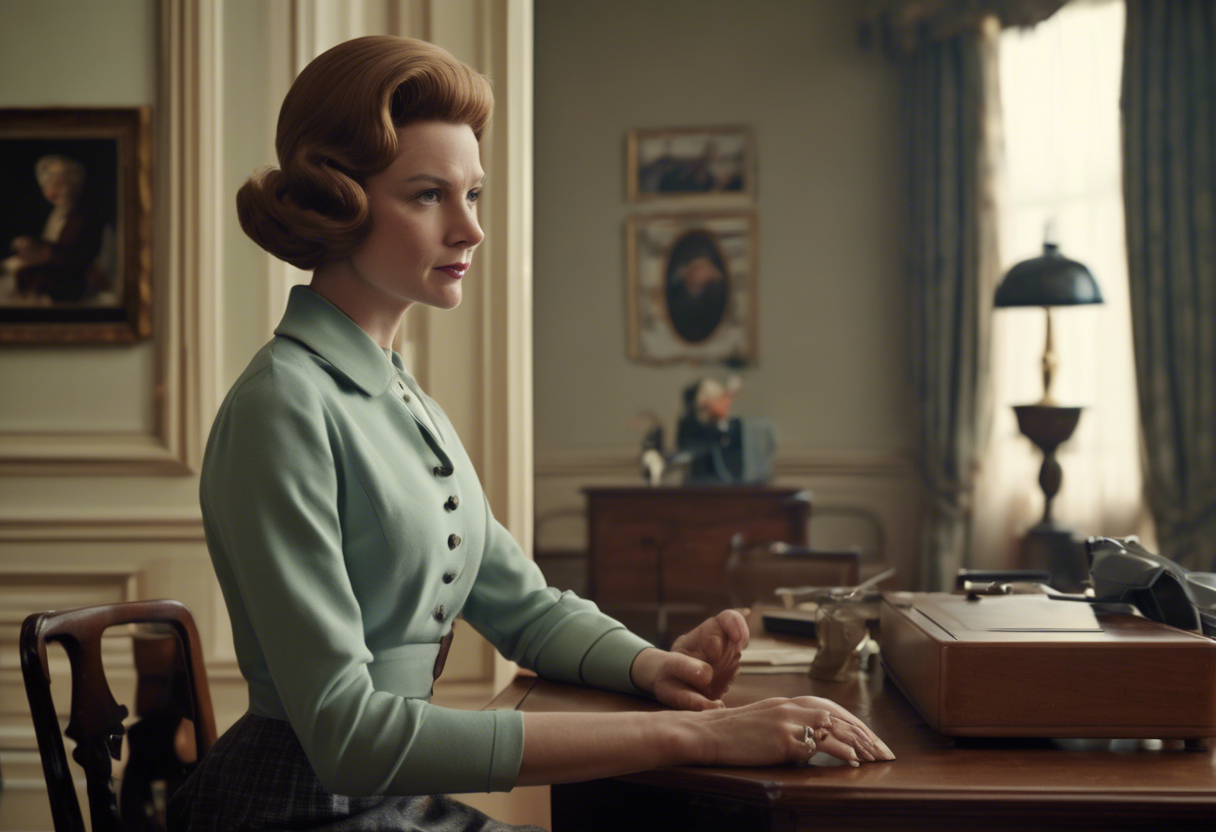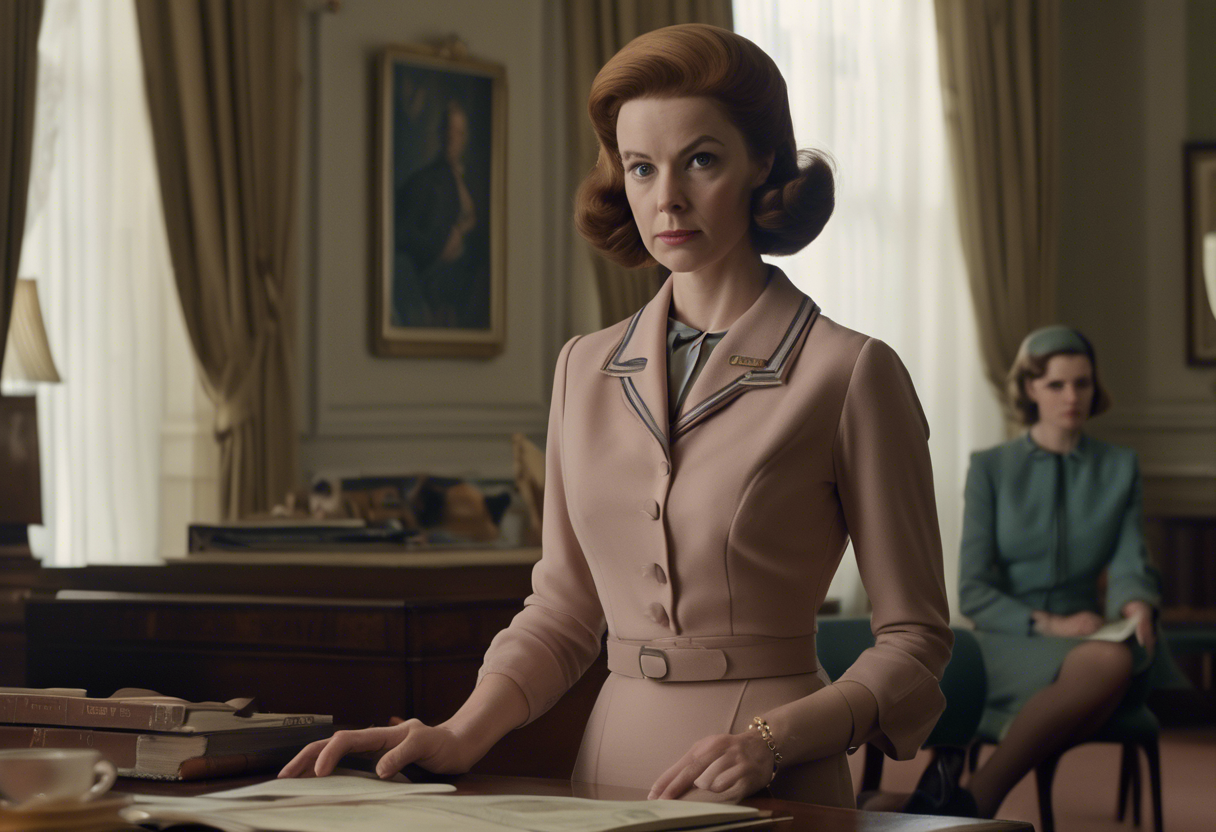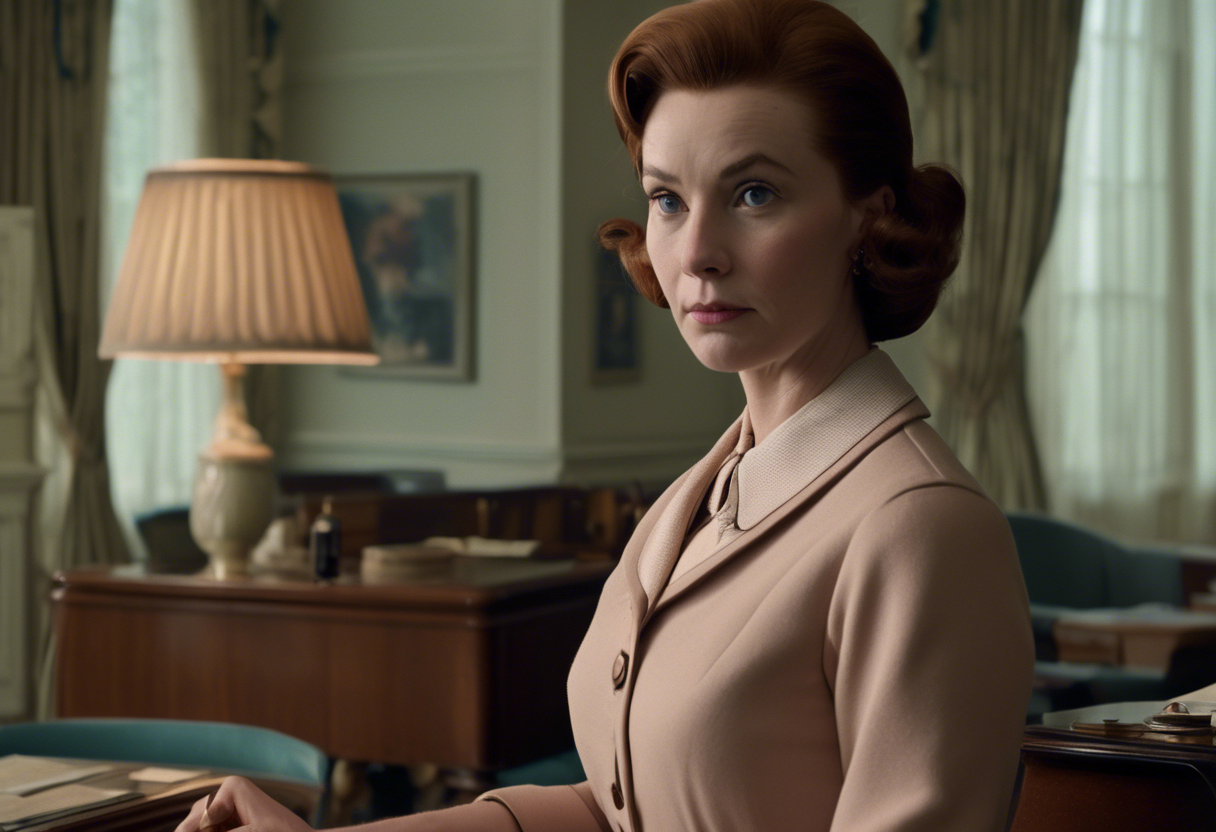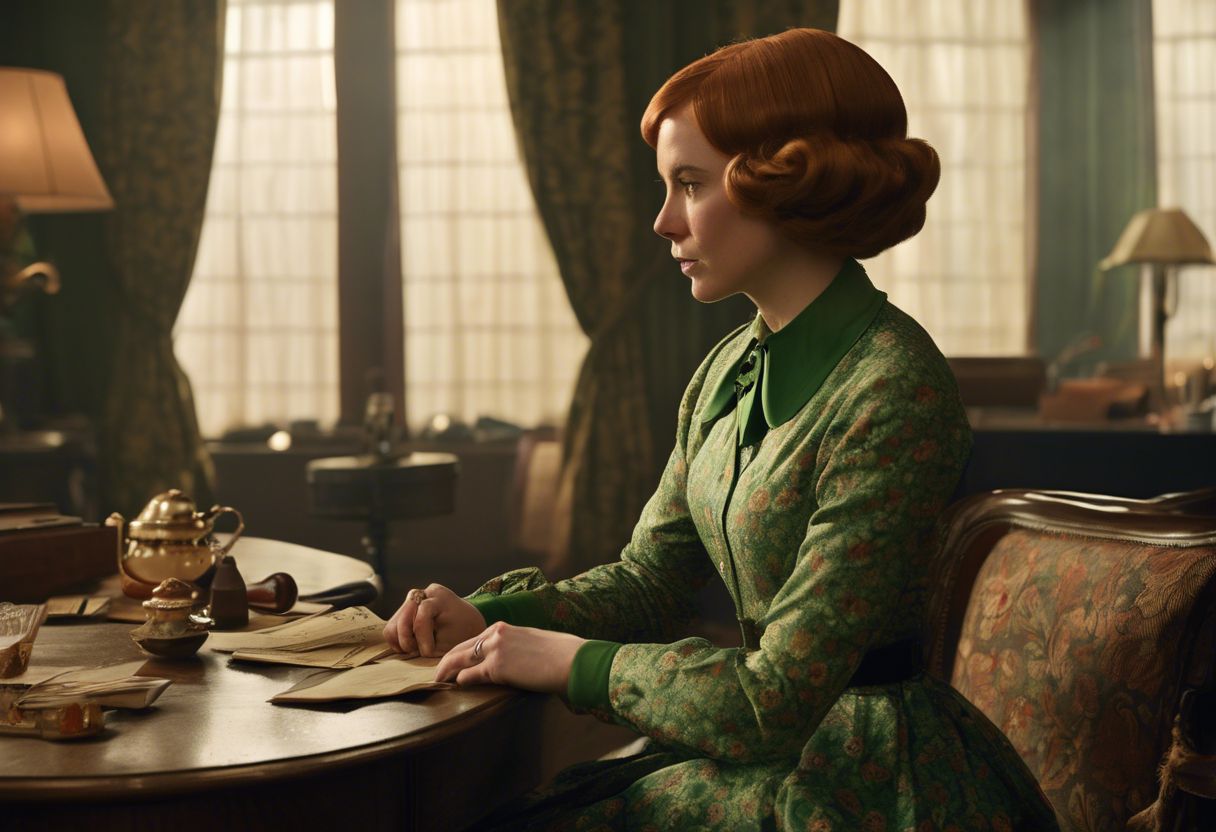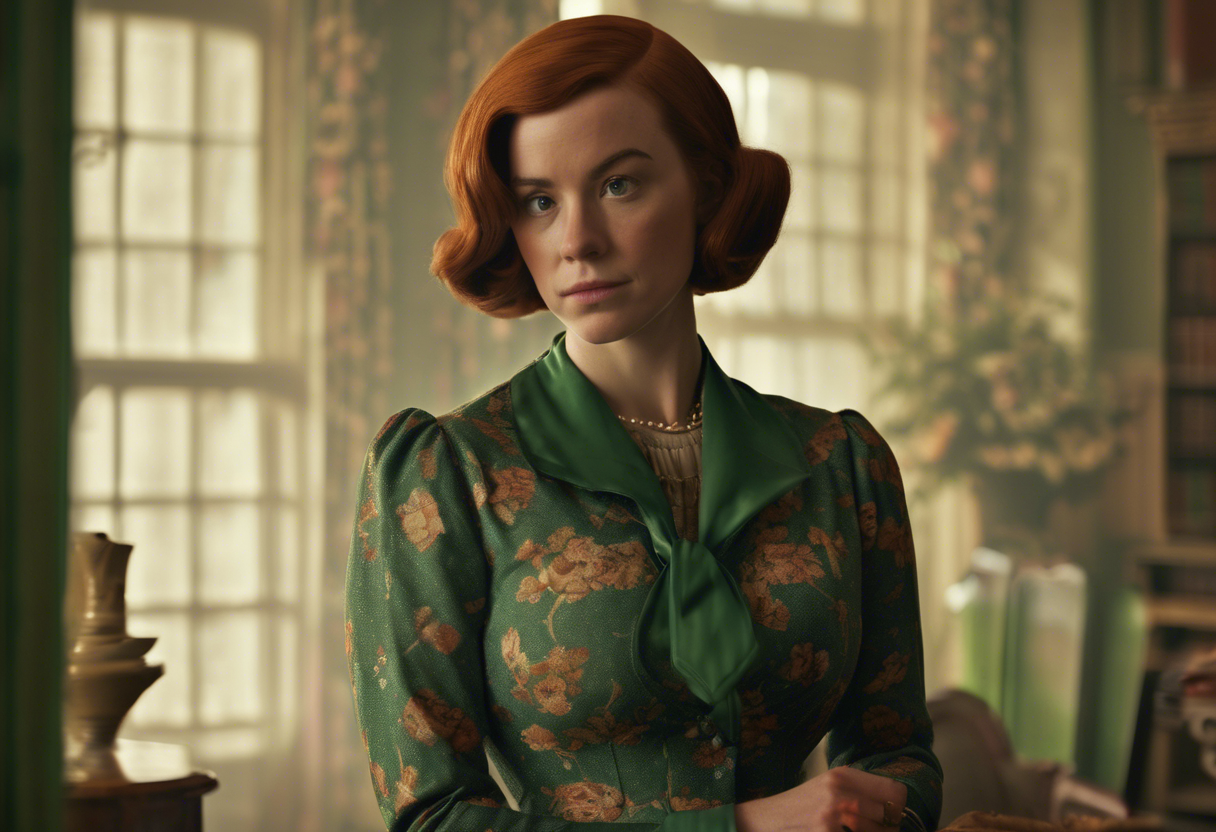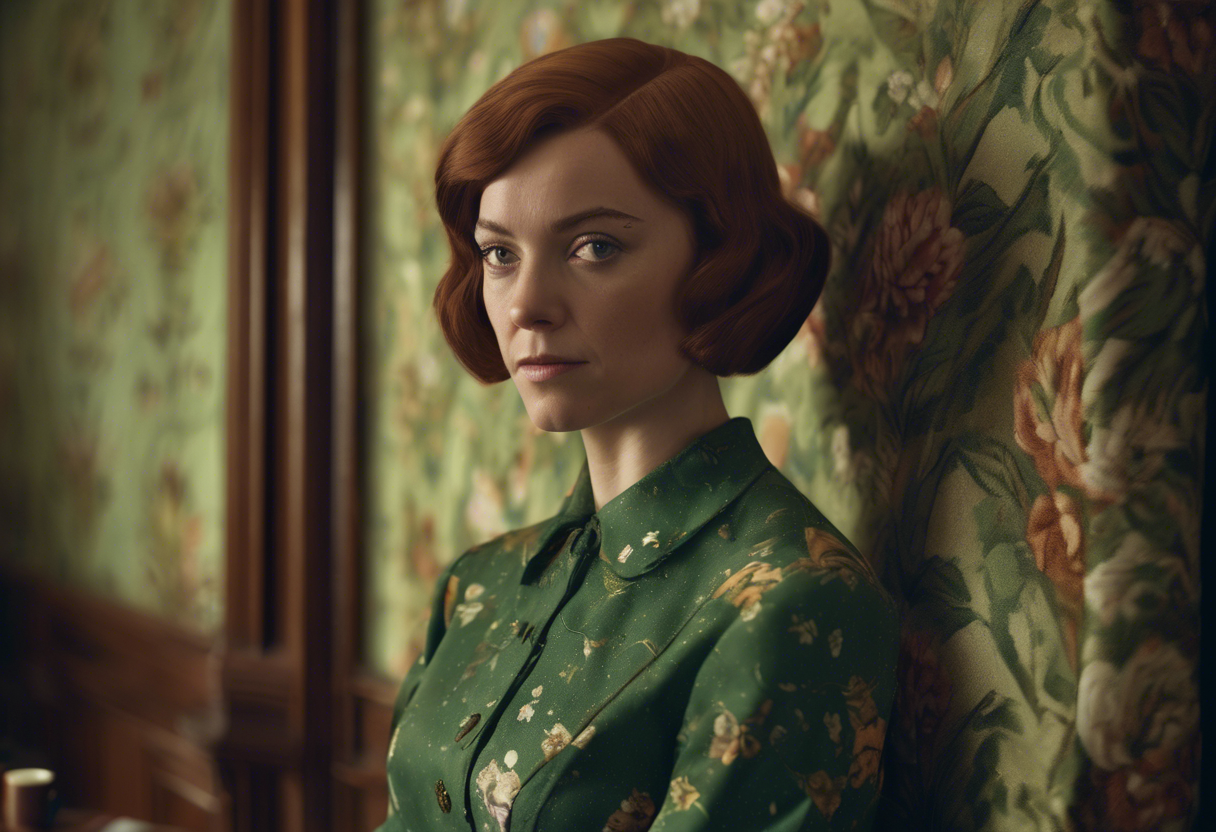Helen Deardorff is a pivotal, though supporting, character in Netflix’s acclaimed limited series The Queen’s Gambit, serving as the superintendent of the Methuen Home for Girls, the orphanage where protagonist Elizabeth "Beth" Harmon begins her journey. Introduced early in the narrative, Mrs. Deardorff embodies a complex blend of strictness and protective authority, managing the orphanage with a firm hand that commands respect and sometimes fear from the children under her care. Her character’s origins are situated within the 1950s Kentucky setting of the series, a period marked by rigid social structures and institutional discipline, which are reflected in her approach to running the orphanage. Beyond her role as an institutional caretaker, Helen Deardorff represents a figure caught between stern responsibility and human complexity: she is neither a villainous authority figure stereotypical of orphanage heads in media nor a nurturing maternal figure; rather, she is portrayed with nuanced layers that reveal her dedication to the orphanage as her familial anchor and her cautious but necessary enforcement of rules to maintain order and safety [1][3][4].
In the narrative of The Queen’s Gambit, Helen Deardorff’s role is significant in shaping Beth’s formative years, particularly regarding Beth’s introduction to the game of chess and her early development within the institutional environment. As the director of the Methuen orphanage, Mrs. Deardorff holds a gatekeeping position over Beth’s activities; she initially permits Beth to attend a local high school to play chess under supervision after the custodian Mr. Shaibel recognizes Beth’s prodigious talent. However, when Beth’s impulsive act of stealing tranquilizers from the orphanage medicine cabinet comes to light, Deardorff responds firmly, banning her from participating in chess temporarily. This decision exemplifies the tension between support and discipline that marks their relationship. Mrs. Deardorff does not form a close personal friendship with Beth, but her influence is crucial in influencing the young girl’s early chess opportunities and her adjustment to orphanhood. The conflict between Beth’s burgeoning independence and Deardorff’s institutional authority underlines many early plot developments, serving as a catalyst for Beth’s eventual emancipation and the pursuit of her chess career [1][2][3].
Helen Deardorff’s character is crafted with layers that reveal her personality, motivations, and inherent contradictions. She is portrayed as a disciplinarian who runs the orphanage "like a tight ship," balancing kindness and strictness, and feared for her authoritative stance. Her motivation seems rooted deeply in her dedication to the orphanage — it is "all she has," functioning as her family, which adds emotional depth to her otherwise rigorous demeanor. This dedication explains the care with which she regulates behavior and punishes breaches, reflecting the expensive responsibility she carries for the children’s wellbeing and institutional survival. Deardorff exemplifies a pragmatic strength, enforcing rules not out of cruelty but necessity, yet her flaws lie in her inability to fully connect emotionally with the children, including Beth, which portrays the isolation often inherent in leadership roles within such environments. Her development, while subtler than the protagonist’s, is reflected in how she navigates Beth’s exceptional talents and rebellious moments, showing a measured flexibility beneath her stern exterior. This blend of toughness and veiled compassion makes her a compelling and realistic figure, reflecting the complexity of authority figures who must balance empathy and discipline [1][3][4].
Thematically, Helen Deardorff embodies authority, discipline, and the ambivalent nature of power within institutional settings. She symbolizes the structure within which Beth’s intellectual gifts are both nurtured and constrained. The orphanage itself is a microcosm of mid-20th century societal norms where strict control was seen as necessary for order and progress, but also a source of emotional repression and conflict. Deardorff’s regulation of Beth’s chess playing — initially supporting and subsequently restricting it — reflects the tension between individual potential and institutional constraints. Symbolically, her character represents the duality of caregiving institutions: protective yet repressive, fostering growth yet enforcing conformity. This dualism is a recurring theme throughout the series, illustrating the environment from which Beth must both escape and draw strength. Through Mrs. Deardorff, the narrative explores how authority figures can simultaneously serve as obstacles and enablers in a prodigy’s journey toward self-actualization [1][3][4].
Helen Deardorff’s cultural impact, while more understated compared to the protagonist and other major characters, remains significant in framing The Queen’s Gambit’s story of resilience and talent emerging from constrained environments. Fans have recognized her as a nuanced representation of an authority figure who defies simplistic villainous tropes often associated with orphanage heads in media, gaining appreciation for Christiane Seidel’s portrayal that brings this complexity to life. Although there are no direct spin-offs or adaptations focusing exclusively on Deardorff, her character contributes to a broader conversation about the portrayal of women in positions of institutional power, especially within historically rigid social frameworks. Her influence in popular culture is primarily through the layered storytelling of The Queen’s Gambit, informing viewers’ understanding of the protagonist’s challenging early environment and highlighting the complex dynamics between care and control within social institutions [1][2][5].
Critical reception of Helen Deardorff has noted her as an integral, if supporting, character who enriches the narrative terrain of The Queen’s Gambit. Critics have praised Christiane Seidel’s performance for capturing the character’s multifaceted persona—strict yet caring, authoritative but vulnerable. Reviews highlight how Deardorff’s presence grounds the series’ depiction of Beth’s childhood in emotional reality, providing a believable institutional backdrop rather than a caricatured obstacle. Some interpretations suggest that the character’s strictness serves as a necessary challenge for Beth, preparing her for the discipline needed in competitive chess. While not sparking significant controversy, Deardorff’s portrayal has been viewed as a successful departure from one-dimensional portrayals of orphanage superintendents, earning recognition for contributing to the series’ cultural authenticity and emotional weight [1][3][4].
Helen Deardorff’s legacy lies in her role as a quietly powerful figure who encapsulates the complex nature of authority in nurturing environments, making her a memorable part of The Queen’s Gambit’s enduring appeal. She remains relevant to contemporary discussions on how institutions shape individual potential and the often paradoxical roles those who govern such institutions must play. Her character serves as a prototype for balanced portrayals of strict but caring authority figures in media, inspiring nuanced character archetypes that go beyond villainous or overly sentimental depictions. Deardorff’s impact endures through the series’ continued popularity, reminding audiences of the layered human stories behind prodigious success and the often unseen figures who shape formative experiences [1][3][5].
References
- https://theimagista.com/christiane_seidel/
- https://screenrant.com/netflix-the-queens-gambit-beth-most-least-supporting-friends/
- https://www.litcharts.com/lit/the-queen-s-gambit/characters/mrs-deardorff
- https://en.wikipedia.org/wiki/The_Queen’s_Gambit_(miniseries)
- https://www.imdb.com/name/nm2554097/

